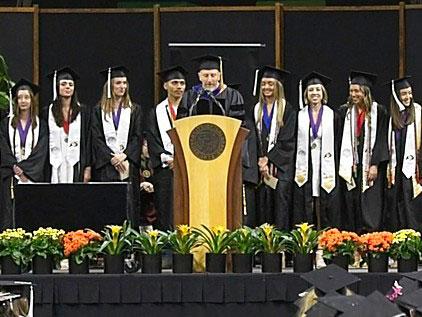
Honors Program

The goal of the Honors Program is to acknowledge highly motivated students who excel both in the classroom and in research and to provide such students with special educational opportunities. This page describes the Department of Psychology and Neuroscience Honors Program. Students interested in General Honors are referred to the University Honors Program.
Honors Council Members
- June Gruber (Director), June.Gruber@colorado.edu
- Mike Baratta, Michael.Baratta@Colorado.edu
Department Honors Council Representatives
- Veronica Derricks, Veronica.Derricks@colorado.edu
- Ryan Goffredi, Ryan.Goffredi@colorado.edu
- Chelsea Kilimnik, Chelsea.Kilimnik@colorado.edu
- Al Kim, Albert.Kim@colorado.edu
- Erik Knight (Spring 2026 only), Erik.Knight@colorado.edu
- Akira Miyake, Akira.Miyake@Colorado.edu
- Susanna Molas, Susanna.Molas@colorado.edu
- Emily Schell, Emily.Schell@colorado.edu
Complete the following two forms (for Spring 2026 defense):
- Pre-Registration Form (Department Use Only): Please complete this short form by Friday 09/26/25, especially if you need help finding an honors representative. Note that this process is internal to the department and is meant to be helpful and not disqualifying in any way. If you miss the 09/26 deadline and still want help, email June.Gruber@colorado.edu.
- Registration Form (Honors Office Requirement). You must also make sure you complete all requirements for registration with the honors office. Please complete the required honors office form by Tuesday 10/07/25 for a Spring 2026 defense.
Requirements
Maintain a high GPA. Guidelines adopted by the Honors Council are a 3.3 GPA for graduating “cum laude,” 3.5 GPA for “magna cum laude,” and 3.8 GPA for “summa cum laude.” These are guidelines and the Honors Council occasionally awards an honors designation inconsistent with these guidelines depending on the quality of the honors thesis. Students with a GPA of less than 3.3 who are interested should contact the Honors Director. Completing a research thesis is a rewarding experience whether or not one graduates with honors. Conducting research in collaboration with a professor is one of the most important educational opportunities uniquely available at a research institution like the University of Colorado.
Honors Thesis. Honors students must conduct an empirical research project under the supervision of a faculty member, write a thesis based on that research, and defend the thesis before a committee of three faculty members. The examining committee includes (a) the student's thesis advisor, (b) one of the departmental representatives to the Honors Council, and (c) a faculty member outside the Department of Psychology and Neuroscience. It is up to the student to form the committee and to schedule the defense date.
Paperwork
Students intending to graduate with departmental honors must complete a registration packet, which can be obtained online or in person at the Honors Program office (Norlin Library M400L). The university deadline for completing this registration packet is around the middle of the semester before you intend to graduate.
Students may also register for a maximum of 3 credits of Senior Thesis (PSYC/NRSC 4011) for the semester that they defend their thesis. To do so, students must complete a form available online or in the Advising Office (D260 Muenzinger). This form needs to be signed by your thesis advisor and by one of the departmental representatives to the Honors Council.
Important Dates
It is important that you inform us about your interest in graduating with honors as soon as possible. The university deadline for completing the application packet for graduation with Honors is around the middle of the semester before you intend to graduate. Note: Exact dates are available from the Honors Graduation Page (look under the Registration and Deadlines heading). The thesis defense may be completed anytime before the deadline.
Reserving a Room
To reserve a room in Muenzinger for your thesis defense, please send the following information to psycnrsc-gg-roomreservations@colorado.edu
- Name
- Thesis Advisor
- Date
- Start Time
- End Time
- Number of Attendees
- Room Preference

